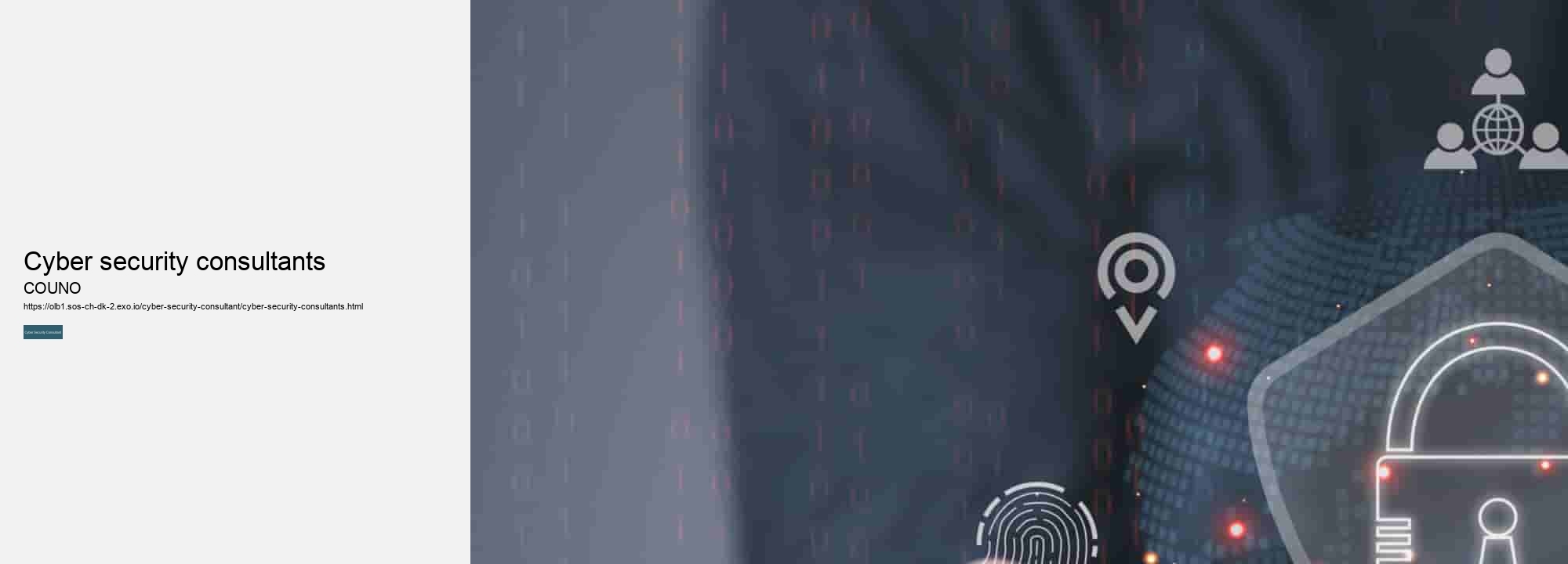

The impacts of data breaches can be devastating. Not only do they result in financial losses due to stolen funds or legal fees, but they also erode customer trust and tarnish an organization's reputation. Data breaches can also lead to regulatory fines and lawsuits, further compounding the damage. Furthermore, individuals whose personal information has been compromised may suffer identity theft or other forms of fraud.
Employee training programs can also help raise awareness about cybersecurity best practices and reduce the risk of human error. It is crucial for organizations to stay informed about emerging threats and update their systems regularly to patch any vulnerabilities. In conclusion, data breaches are a serious threat that all organizations must take seriously.
Ultimately, investing in cybersecurity measures is not only essential for protecting financial assets but also for maintaining trust with customers and stakeholders alike. The Evolution of Cyber Attacks: From Phishing to RansomwareCyber attacks have evolved significantly over the years, from the early days of simple phishing scams to sophisticated ransomware attacks that can cripple entire organizations. The evolution of cyber attacks has been driven by advancements in technology, changes in how we use the internet, and the increasing value of data in today's digital world.
Phishing attacks were among the first types of cyber attacks to emerge, with hackers using email or fake websites to trick users into revealing sensitive information such as passwords or credit card numbers. These attacks were relatively easy to spot and avoid, but they still managed to cause significant damage due to their sheer volume. As security measures improved and users became more aware of phishing tactics, hackers began turning to more advanced techniques such as malware and ransomware. Malware is malicious software that can infect a computer system and steal data or disrupt operations.
Ransomware attacks have become increasingly common in recent years, with high-profile incidents affecting hospitals, government agencies, and large corporations. These attacks are often highly organized and targeted, with hackers gaining access to networks through vulnerabilities in outdated software or social engineering tactics. The evolution of cyber attacks has forced organizations to invest heavily in cybersecurity measures to protect themselves against potential threats.
This includes implementing firewalls, antivirus software, encryption technologies, and employee training programs to educate staff about best practices for online security. Despite these efforts, cyber attacks continue to pose a significant risk for businesses and individuals alike. Hackers are constantly developing new ways to exploit vulnerabilities in systems and networks, making it essential for organizations to stay vigilant and proactive in their defense strategies. In conclusion, the evolution of cyber attacks from phishing scams to ransomware incidents highlights the ever-changing nature of cybersecurity threats. As technology continues to advance, so too must our defenses against these malicious actors who seek to exploit weaknesses in our digital infrastructure. By staying informed and investing in robust security measures, we can better protect ourselves against the growing threat of cybercrime.
With the increasing number of cyber attacks and data breaches, it is crucial for individuals to take proactive steps to safeguard their sensitive information. One of the best practices for protecting personal information online is to use strong, unique passwords for each account. This means avoiding common passwords such as "password123" or "123456" and opting for a combination of letters, numbers, and special characters. It is also recommended to change passwords regularly and never share them with anyone else. Another important practice is to be cautious about what information you share online.

Avoid posting sensitive details such as your address, phone number, or Social Security number on social media or other public platforms. Be wary of phishing scams that attempt to trick you into revealing personal information through fake emails or websites. It is also essential to keep your devices and software up-to-date with the latest security patches. This helps protect against vulnerabilities that hackers can exploit to gain access to your personal information.
Finally, be mindful of who you trust with your personal information. Only provide sensitive details to reputable websites and organizations that have secure privacy policies in place. If you are unsure about a website's credibility, do some research before sharing any information.
Remember that cybersecurity is a shared responsibility, so take proactive steps to safeguard your sensitive data and stay vigilant against potential threats in the digital world. Cyber Security Regulations and Compliance Measures for BusinessesCyber security regulations and compliance measures for businesses are crucial in today's digital world. With the increasing number of cyber threats and attacks, it is essential for companies to prioritize the protection of their sensitive data and information.
These regulations outline specific requirements that companies must adhere to in order to protect personal information from unauthorized access or disclosure. In addition to regulatory requirements, businesses also need to consider industry-specific standards and best practices when it comes to cyber security. This includes implementing strong password policies, regularly updating software and systems, encrypting sensitive data, and training employees on how to recognize and respond to potential security threats.
Compliance with cyber security regulations not only helps protect a company's reputation and financial assets, but it also demonstrates a commitment to safeguarding customer trust. Failure to comply with these regulations can result in hefty fines, legal consequences, and damage to a company's brand image. To effectively manage cyber security risks, businesses should establish a comprehensive cyber security program that includes regular risk assessments, incident response plans, employee training programs, and ongoing monitoring of systems and networks. By taking proactive steps to enhance their cyber security posture, organizations can better protect themselves against potential threats and ensure compliance with relevant regulations.
By prioritizing cyber security best practices and staying up-to-date on regulatory requirements, companies can mitigate risks, protect sensitive data, and build trust with customers. Ultimately, investing in cyber security is an investment in the long-term success and sustainability of a business in an increasingly connected world. What is the importance of cyber security in today's digital world?

In today's digital world, cyber security plays a crucial role in ensuring the safety and protection of our sensitive information. With the rapid advancement of technology, we are more connected than ever before, making us vulnerable to cyber attacks and threats. Cyber security is important because it helps to safeguard our personal data, financial information, and confidential documents from hackers and cyber criminals. Without proper security measures in place, our identities can be stolen, our bank accounts can be compromised, and our privacy can be invaded. Moreover, businesses rely heavily on technology to operate efficiently and effectively. A breach in their cyber security can result in significant financial losses, damage to their reputation, and even legal consequences.
Furthermore, as we continue to embrace digital transformation in various aspects of our lives such as online shopping, social media interactions, and remote work arrangements, the need for strong cyber security practices becomes increasingly important. We must be proactive in defending ourselves against potential threats by staying informed about the latest trends in cyber crime and taking necessary precautions to protect ourselves online. In conclusion, cyber security is not just a technical issue but a fundamental aspect of living in a digital age. By prioritizing cybersecurity awareness and implementing best practices both at an individual level and within organizations, we can mitigate risks and ensure a safer online environment for everyone. It is crucial that we remain vigilant and proactive in safeguarding our digital assets to prevent potential harm from malicious actors on the internet.
What is the role of encryption in maintaining cyber security? In today's digital age, the importance of cyber security cannot be overstated. With the increasing prevalence of cyber attacks and data breaches, it is more crucial than ever to protect sensitive information from unauthorized access. One of the key tools in maintaining cyber security is encryption. Encryption is a method of encoding data so that only authorized parties can access it.
This makes it extremely difficult for malicious actors to steal or tamper with sensitive information. The role of encryption in maintaining cyber security cannot be understated. It is used to secure communication channels, such as emails and instant messages, ensuring that confidential information remains private. Encryption also plays a crucial role in protecting stored data, whether it be on personal devices or on servers in the cloud.
Moreover, encryption helps to authenticate users and verify their identities before granting access to systems and services. This prevents unauthorized individuals from gaining entry to restricted areas and minimizes the risk of insider threats. Additionally, encryption can provide non-repudiation by creating digital signatures that verify the origin and integrity of electronic transactions. Overall, encryption serves as a powerful tool in safeguarding against cyber threats and upholding the principles of confidentiality, integrity, and availability.

Penetration testing is a simulated cyber attack to identify vulnerabilities. It’s crucial for understanding potential security weaknesses before real attackers exploit them.